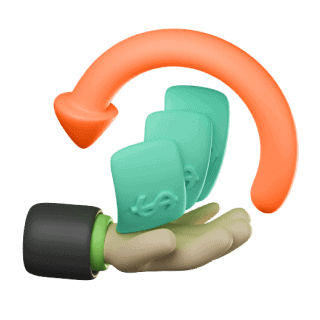Identify the Ideal NET Developers for Hire
When seeking to hire NET developers, it's crucial to recognize that the concept of an ideal candidate can vary depending on the level of expertise required. Whether you're looking for a junior, mid-level, or senior .NET developer, each level demands specific skills. Now let’s delve into the key attributes and necessary hard and soft skills for each level.
.NET Developer Hard Skills
.NET developer's hard skills form the bedrock of their technical expertise: they determine the ability to translate ideas into functioning code and navigate the complexities of the .NET ecosystem. However, how these skills differ across different developer levels is an important distinction to understand.
Junior .NET Developer Hard Skills
The .NET adventure begins with a firm grasp of programming fundamentals and C# as a trusty companion. Building basic web apps using ASP.NET Core or Razor Pages become the Junior .Net Developer playground, while databases like SQL Server and their query language, SQL, are the tools for data manipulation. And don’t overlook how this candidate uses version control skills (like Git) to keep track of the code's evolution.
Middle .NET Developer Hard Skills
As they level up, .NET skills become sharper, embracing advanced concepts like generics and asynchronous programming. Design patterns become the Middle .NET Developer’s secret weapons for structuring complex applications, while testing frameworks like NUnit or xUnit help them ensure their quality. Remember, continuous integration and delivery (CI/CD) pipelines must be allies for streamlined development and deployment. Cloud platforms like Azure or AWS open doors to new possibilities and understanding RESTful APIs becomes key for seamless communication – important things to look at when hiring a NET developer at the Middle level.
Senior .NET Developer Hard Skills
If you hire a seasoned architect, craft scalable, secure, and maintainable software. This way, performance optimization becomes the Senior .NET developer’s mantra, and microservices are his building blocks for agility. Security is no longer just a word; it's woven into the fabric of code. And as we mentioned before in the soft skills section, sharing wisdom through mentoring is for a Senior .NET developer as rewarding as tackling complex technical challenges.
Team Lead .NET Developer Hard Skills
At the helm of the developer team, leadership skills take center stage. The team lead must motivate, inspire, and guide the team, fostering collaboration and communication through clear channels. Agile methodologies like Scrum or Kanban are the Team Lead .NET developer’s guiding principles, as technical debt management is a constant battle they fight strategically.
.NET Developer Soft Skills
While technical chops are crucial for any .NET developer, soft skills are the secret sauce that elevates a .NET developer’s career and makes your candidate a valuable asset. These skills become even more important as candidates progress in the .NET journey. Let's explore the key soft skills required at different stages.
Junior .NET Developer Soft Skills
The journey begins with communication, the art of weaving technical prowess into understandable narratives for both tech-savvy and non-technical audiences. The candidate must actively listen, pose clarifying questions, and express ideas with confidence and clarity in meetings and discussions. They should embrace challenges as opportunities to hone problem-solving skills.
Look how a .NET Developer breaks down complex issues into manageable steps, leverages debugging tools effectively, and taps into the creative problem-solving arsenal. Do they understand the power of learning? The .NET Developer must cultivate a passion for continuous growth, actively seek out new technologies and best practices, embrace feedback with open arms, and translate learning into valuable skills. They should also be a team player who listens actively, respects diverse perspectives, contributes positively, and readily extends support to fellow developers.
Finally, as project requirements and technologies evolve, junior developers must remain flexible and open to change, willingly learning new tools, frameworks, and seamlessly adjust to different work environments and team dynamics – this is how ideal junior NET developers for hire act.
Middle .NET Developer Soft Skills
Equipped with foundational skills, it's time to take the next step. Middle .NET Developers must don the hat of a mentor, sharing their knowledge and expertise with junior team members. Such developers provide constructive feedback, guide their learning journey, and cultivate a supportive environment that fosters growth.
Middle .NET developers must be ready to take ownership of tasks, demonstrating accountability and reliability, proactively identify and address potential issues, consistently meet deadlines, and deliver high-quality work – this is how a middle NET programmer for hire typically behaves.
Time is of the essence for them! They must master the art of time management by effectively prioritizing tasks, managing their workload to avoid becoming overwhelmed, and seeking help when needed.
Senior .NET Developer Soft Skills
Now, prepare to step into the role of a technical leader. Seniors must provide guidance and direction to the team, staying ahead of the curve by exploring emerging trends and technologies, evaluating their impact, and advocating for best practices. They must bridge the technical gap by effectively communicating with stakeholders, and translating complex concepts into clear, concise language that resonates with non-technical audiences. Also, they need to manage their expectations and communicate solutions effectively.
Remember, a true Senior tackles challenges head-on. They approach complex problems with creativity and strategic thinking, considering diverse solutions. Moreover, they communicate those solutions effectively to stakeholders and team members – this is an ideal portrait of Senior .NET developers. Take this into account when hiring NET developers at the Senior level.
Team Lead .NET Developer Soft Skills
The final stage – hire .NET developer Team Lead, the conductor of the development orchestra. The Team Lead must effectively delegate tasks, motivating and inspiring their team to unleash their full potential, and foster a positive and productive work environment that celebrates collaboration and growth. For this, the Team Lead equips themself with the tools to navigate conflict resolution and facilitate constructive dialogue within the team.
And finally, don't forget the importance of strategic thinking. A Team Lead must align the team's efforts with the overall company goals and strategies, identifying opportunities for improvement and innovation, thus proactively addressing potential challenges and roadblocks are crucial for this role.
Remember, this is just a roadmap. The specific skills you'll need might differ based on your company and projects, but the core principles remain the same: a solid foundation, continuous learning, and the ability to adapt and grow alongside the ever-evolving .NET landscape. So, hire NET core developers wisely, embrace the journey, and become the great project you're destined to be!








 Publish your position for free and set up the bonus.
Publish your position for free and set up the bonus. Interview the relevant pre-vetted candidates only.
Interview the relevant pre-vetted candidates only. Pay the one-time bonus to a recruiter only after the position is filled.
Pay the one-time bonus to a recruiter only after the position is filled.









